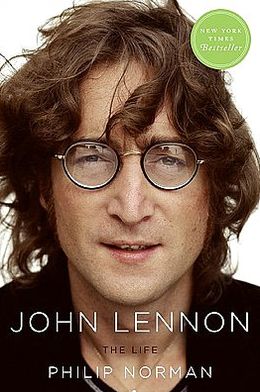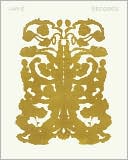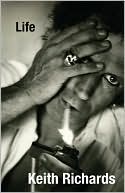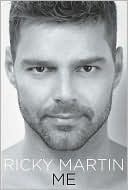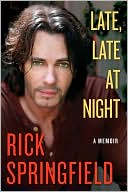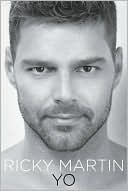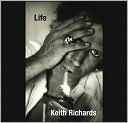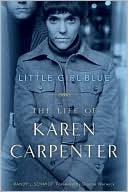John Lennon: The Life
For more than a quarter century, Philip Norman's internationally bestselling Shout! has been unchallenged as the definitive biography of the Beatles. Now, at last, Norman turns his formidable talent to the Beatle for whom belonging to the world's most beloved pop group was never enough. Drawing on pre-viously untapped sources, and with unprecedented access to all the major characters, here is the comprehensive and most revealing portrait of John Lennon that is ever likely to be published.\...
Search in google:
Philip Norman turns his formidable talent to the Beatle for whom belonging to the world's most beloved pop group was never enough. Drawing on previously untapped sources, and with unprecedented access to all the major characters, here is the definitive portrait of John Lennon. This masterly biography takes a fresh and penetrating look at Lennon's much-chronicled life, including the songs that have turned him, posthumously, into almost a secular saint. In three years of research, Norman has turned up an extraordinary amount of new information about even the best-known episodes of Lennon folklore. The book's numerous key informants and interviewees include Sir Paul McCartney, Sir George Martin, and Yoko Ono, who speaks with sometimes shocking candor about the inner workings of her marriage to John. Honest and unflinching, as John himself would wish, Norman gives us the whole man in all his endless contradictions—tough and cynical, hilariously funny but also naive, vulnerable and insecure—and reveals how the mother who gave him away as a toddler haunted his mind and his music for the rest of his days. Publishers Weekly Graeme Malcolm does an excellent job reading Norman's studious biography of the most beloved Beatle. Beginning with Lennon's parents' roots in working-class Liverpool, and continuing through his enormous success as part of the world's most popular band and as a solo artist, Norman's biography covers all the bases of an already-well-thumbed life. Malcolm does a particularly superb job of capturing the inimitable Liverpudlian accents of the Fab Four, and Lennon in particular. Stately, but studded with flashes of good humor and a storyteller's sensibility for rhythm, Malcolm's reading is good enough to keep listeners hooked, as if they were listening to "I Want to Hold Your Hand," or "Let It Be." An Ecco hardcover (Reviews, July 7). (Nov.)Copyright © Reed Business Information, a division of Reed Elsevier Inc. All rights reserved.
Before leaving London for the Sweet Toronto Peace Festival in September 1969, John had finally made up his mind to resign from the Beatles. But the whirl of departure had left no time to break it to the other three.\ On September 20, Klein called a meeting in Apple’s boardroom for the formal signing of the Capitol contract. For the first time in months that John had all his fellow Beatles on hand to hear his news. But initially he held back, confining himself to a generalized complaint about Paul’s dominance of the band since the Magical Mystery Tour album. “I didn’t write any of that except Walrus . . . ” His tone was more hurt than accusatory. “So I didn’t bother, you know, and I thought I don’t really care whether I was on or not, I convinced myself it didn’t matter, and so for a period if you didn’t invite me to be on an album personally, if you three didn’t say, ‘Write some more songs ’cause we like your work,’ I wasn’t going to fight.”\ The insecurity and fatalism revealed in this outburst were surprising enough. But John did not stop there. Warming to his theme – though still wounded rather than angry – he accused Paul of always having overshadowed him, not only by writing more songs but also by inveigling the lion’s share of studio time. It was not a row, more like the airing of mutual grievances before a marriage counselor. Surprised, and not a little hurt himself, Paul conceded that he might have “come out stronger” on recent albums, but pointed out that often when they went into the studio, John would have only a couple of songs ready to record. John agreed his inertia had been a factor: “There was no point in turning ’em out – I didn’t have the energy to turn ’em out and get ’em on as well.”\ Paul was all for burying hatchets and pressing forward, convinced all would be well if they could free themselves from balance sheets and office politics. “When we get in a studio, even on the worst day, I’m still playing bass, Ringo’s still drumming, we're still there, you know. . . .”\ It was the cue for John’s bombshell. “He hadn’t even told me he was going to do it,” Yoko remembers. “John said, ‘You don’t seem to understand, do you? The group is over. I’m leaving’ “\ “I started the band, I disbanded it. It’s as simple as that,” John himself would recollect. “I must say I felt guilty at springing it on them at such short notice. After all, I had Yoko; they only had each other.”\ According to music-industry wisdom in 1969, not even the Beatles could split up and expect to continue selling records in significant quantity. It was therefore vital that no word of John’s resignation should leak out until the Abbey Road album had realized its full market potential. “Paul and Klein convinced him to keep quiet,” Yoko remembers. “We went off in the car, and he turned to me and said, ‘That’s it with the Beatles. From now on, it’s just you – okay?’ I thought, ‘My God, those three guys were the ones entertaining him for so long. Now I have to be the one to take the load.’ ”\ From the Hardcover edition.
Pt. I The Country Boy1 War Baby 32 The Northern Confederacy 223 The Outlaws 404 Shortsighted John Wimple Lennon 585 The Gallotone Champion 796 Buddies 102 Pt. II To the Toppermost of the Poppermost7 My Mummy's Dead 1278 Jealous Guy 1519 Under the Jacaranda 16910 Mach Schau 19311 The Singing Rage 21912 Shadowlands 24813 Lucky Stars 279 Pt. III A Genius of the Lower Crust14 Leather Tonsils in a Throat of Steel 31515 The Big Bang 34216 The Top of the Mountain 37717 Real Life in Cinema Scope 40818 A Most Religious Fellow 439 Pt. IV Zen Vaudeville19 Breathe 46920 Magic, Meditation, and Misery 50121 There's a Good Little Guru 52722 Back to Virginity 54723 Bedlam 58024 Withdrawal Symptoms 61525 Beatledammerung 647 Pt. V Pizza and Fairy Tales26 The Yippie Yippie Shake 68127 Trouble with Harry 71328 Beautiful Boy 74229 Homebody 76330 Starting Over 784 Postscript: Sean Remembers 809 Acknowledgments 819 Index 823
\ Washington Post Book World"Powerful and heartfelt."\ \ \ \ \ Bloomberg News"It’s this level of detail that makes Norman’s 822 pages such compulsive reading."\ \ \ Entertainment Weekly"The bad news is that John Lennon: The Life is so rich and enveloping that it demands to be read…it’s a clear-eyed and compassionate study of a man...Grade: A-."\ \ \ \ \ Rolling Stone"[Norman] sharpens what we know about Lennon at just about every turn…devotees will relish the new information, while casual readers will find a familiar story told more truly than ever before."\ \ \ \ \ USA Today"[Norman’s] definitive biography draws impressively on exclusive and extensive interviews with Yoko Ono and, for the first time on the record, their son Sean…densely detailed, intricately woven and elegantly told, John Lennon: The Life neither condemns nor condones, nor does it consecrate its subject.\ \ \ \ \ New York Times Book Review"[A] haunting, mammoth, terrific piece of work."\ \ \ \ \ Publishers WeeklyGraeme Malcolm does an excellent job reading Norman's studious biography of the most beloved Beatle. Beginning with Lennon's parents' roots in working-class Liverpool, and continuing through his enormous success as part of the world's most popular band and as a solo artist, Norman's biography covers all the bases of an already-well-thumbed life. Malcolm does a particularly superb job of capturing the inimitable Liverpudlian accents of the Fab Four, and Lennon in particular. Stately, but studded with flashes of good humor and a storyteller's sensibility for rhythm, Malcolm's reading is good enough to keep listeners hooked, as if they were listening to "I Want to Hold Your Hand," or "Let It Be." An Ecco hardcover (Reviews, July 7). (Nov.)\ Copyright © Reed Business Information, a division of Reed Elsevier Inc. All rights reserved.\ \ \ \ \ Library JournalThis extensive, thoroughly researched biography traces the life of John Lennon, who, nearly 30 years after his murder, remains one of the most intriguing and respected figures in popular music. Novelist and biographer Norman, who recounted the story of the Beatles in Shout!, focuses here on Lennon's life outside his legendary band, with particular emphasis on his subject's tumultuous, unconventional childhood, his strange and sometimes shocking relationships with and attitudes toward his parents, and his two very different marriages. Lennon's treatment of his discarded first wife and long-suffering, seafaring father are examined in rich detail, shedding new light on his complex personality. Norman investigates both Lennon the public figure and, more interestingly, Lennon the private man, revealing a uniquely talented and influential artist and activist who suffered from sometimes debilitating insecurity and abandonment issues that haunted him throughout his life. Exclusive new commentary from Yoko Ono, Paul McCartney, and sundry confidants and family members provides fresh insight to this accessible albeit lengthy work of popular biography. A highly recommended addition to any public library's music or biography collection. [See Prepub Alert, LJ6/15/08.]\ —Douglas King\ \ \ \ \ \ Kirkus ReviewsComprehensive biography of the Beatles' most outspoken and controversial member, whose murder by a demented fan in 1980 only added to his legacy. Norman wrote one of the first and still one of the best Beatles histories (Shout!, 1981), and though he claims to have corrected many "inaccuracies and misjudgments" from that earlier work, there just isn't much new to say about the group's historic, hysterical popularity or John Lennon's role in it. The author, who is also a veteran novelist (Everyone's Gone to the Moon, 1996, etc.), tries to compensate by giving an in-depth account of Lennon's early years, stressing the lifelong rage and fear of abandonment instilled by familial instability. He was raised by his Aunt Mimi after his father left, while his mother Julia lived nearby with her lover. Lennon was traumatized by Julia's death in 1958, when he was 17. Norman takes a long time to get to the formation of the Beatles; the extraordinary songwriting partnership with Paul McCartney (who gets kinder assessment here than in Shout!); the group's seasoning in the tawdry clubs of Hamburg; their first taste of the mania they inspired in female fans when they played Liverpool's Cavern club in 1961; their breakthrough into national stardom thanks to manager Brian Epstein's and record producer George Martin's nurturing of their talent; the paradigm-shattering American tour of 1964; and the rest of the familiar tale, retold here with care but little passion. The author is frank enough about Lennon's insecurities and capacity for cruelty to have alienated his widow, Yoko Ono, who initially cooperated with Norman but withdrew her endorsement after reading the manuscript, concluding it was "mean toJohn." It isn't. Norman's fully three-dimensional portrait has no evident axe to grind, but it's also hard to tell why he bothered. He's particularly perfunctory with the post-Beatle years, evincing respect but no real affinity for Lennon's political radicalism and avant-garde adventures with Ono. Intelligent and sympathetic, but overlong and unfocused. Agent: Michael Sissons/PFD\ \
